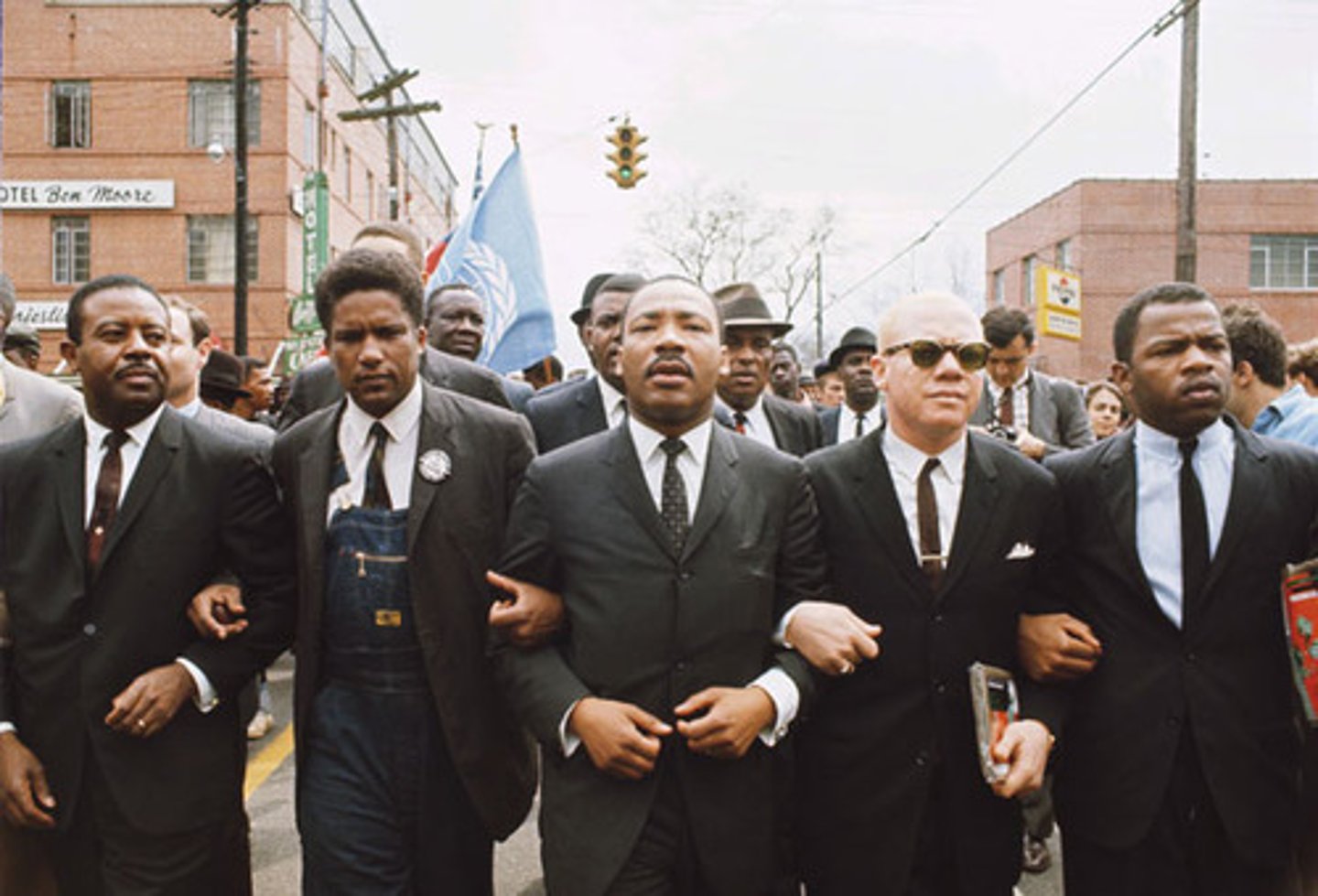9.1 The Civil Rights Movement Strengthens
1/15
There's no tags or description
Looks like no tags are added yet.
Name | Mastery | Learn | Test | Matching | Spaced |
|---|
No study sessions yet.
16 Terms
de jure segregation
Segregation imposed by law, such as Jim Crow laws that enforce separation of the races, including laws falling "separate but equal" facilities.
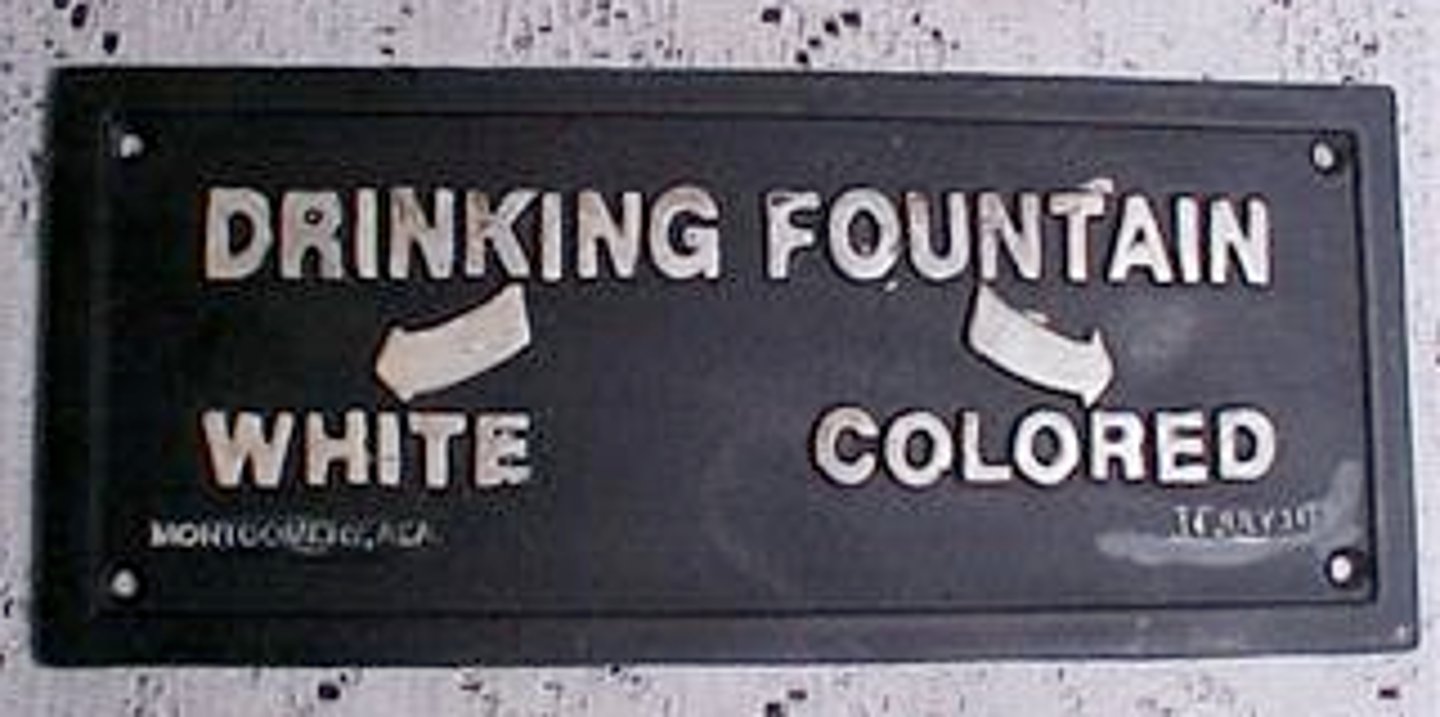
de facto segregation
Segregation by unwritten custom or tradition, such as discrimination in housing and hiring.
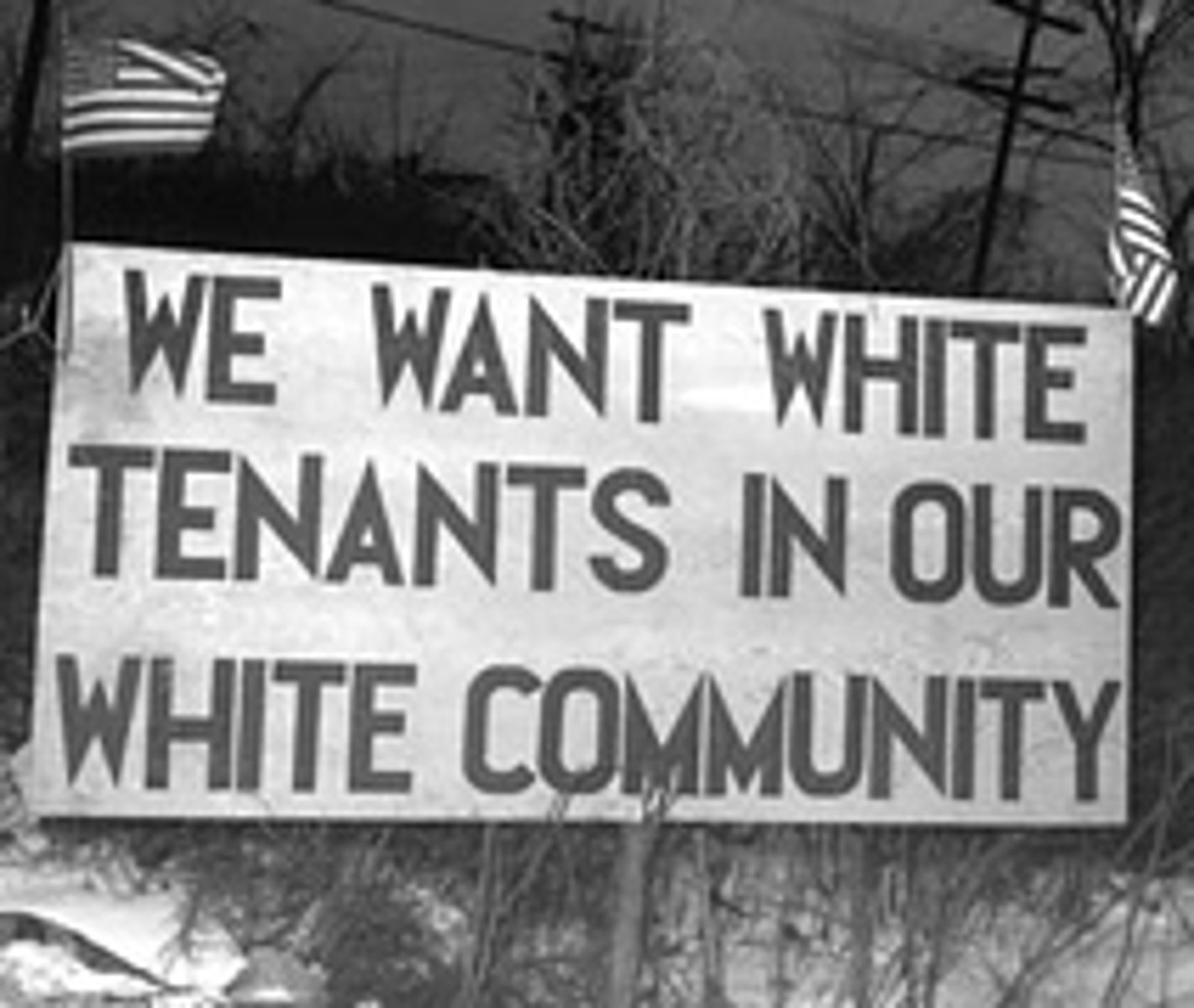
Thurgood Marshall
An attorney for the NAACP starting in 1938, Marshall (1908-1993) became counsel and won 29 of the 32 major civil rights cases he argued over the next 23 years. In 1967, he became the first African American to sit on the Supreme Court and held the post until poor health caused him to retire in 1991.
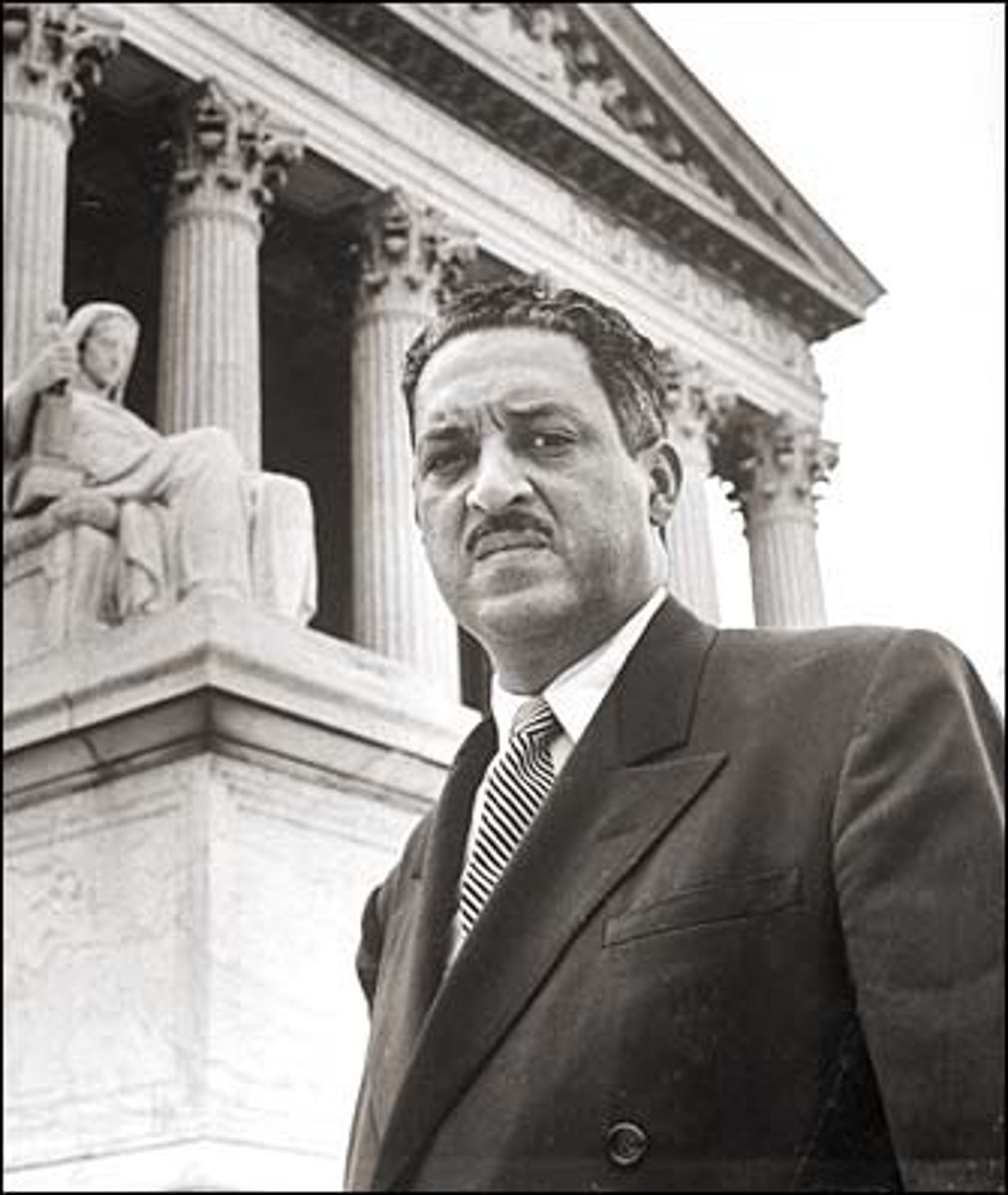
Earl Warren
A former three-term governor of California, Warren (1891-1974) served who before served as Chief Justice of the Supreme Court from 1953 to 1969. Under Warren's leadership, the Court decided several landmark cases that affected civil rights, criminal procedures, voting rights, and separation of church and state.
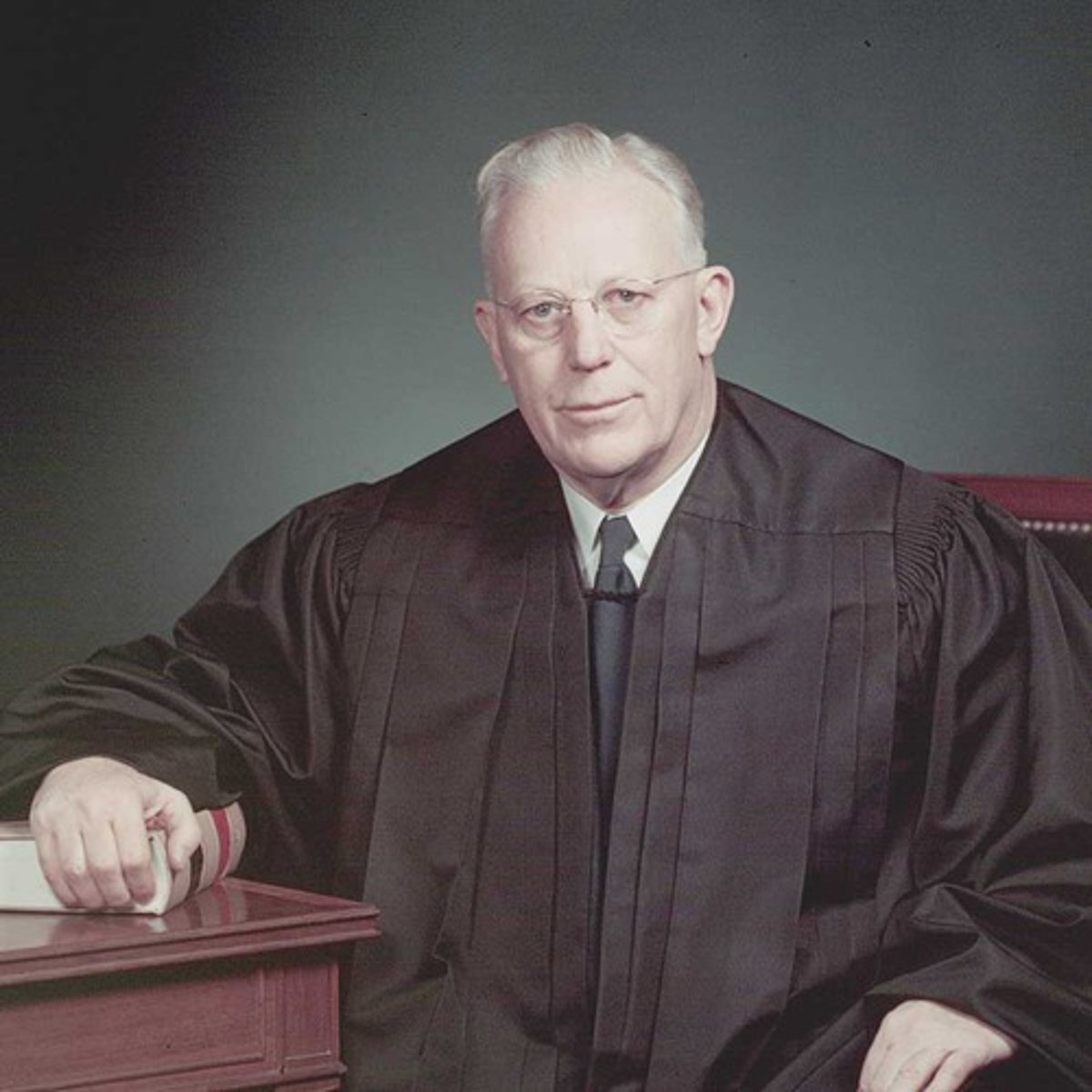
Civil Rights Act of 1957
The law that established a federal Civil Rights Commission to investigate violations of civil rights including voting rights.
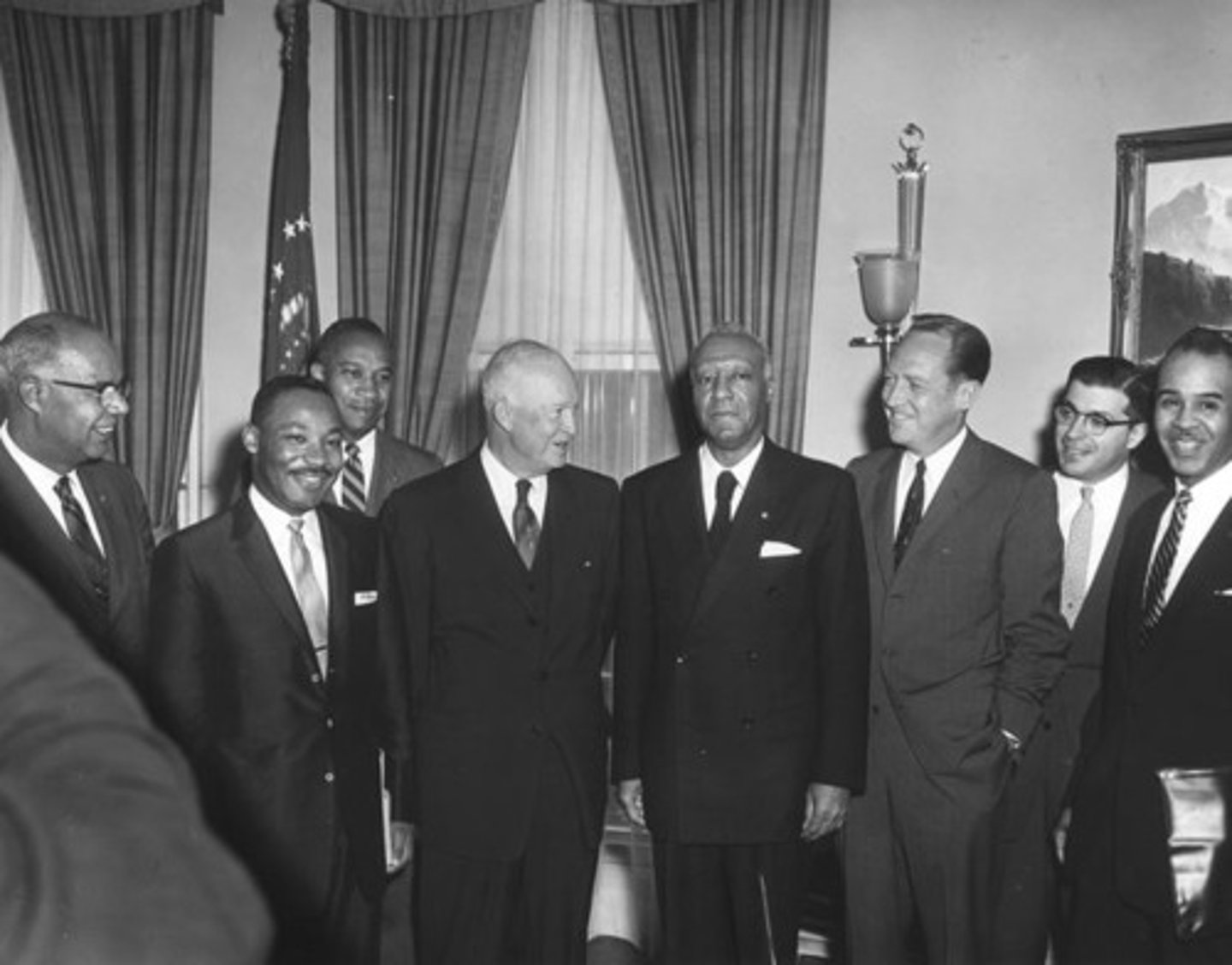
Orval Faubus
Arkansas governor who called out the National Guard to prevent nine black students from entering Little Rock's Central High School under federal court order.
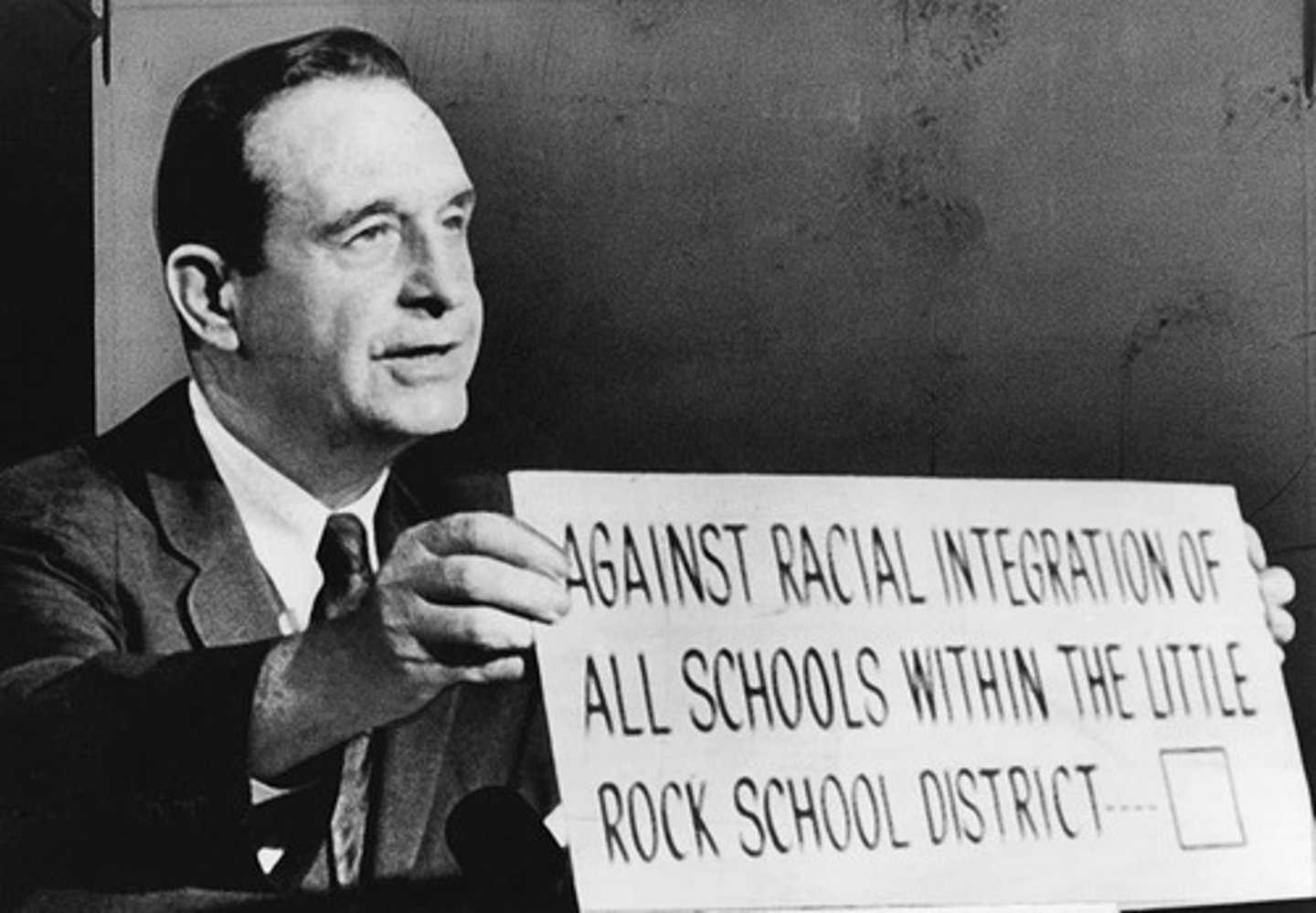
Rosa Parks
The woman who began the Montgomery, Alabama, bus protest in 1955 when she refused to give up her seat to a white passenger. Parks (1913-2005) continued to be active in the civil rights movement while working for a member of Congress and starting a nonprofit organization to help young people.
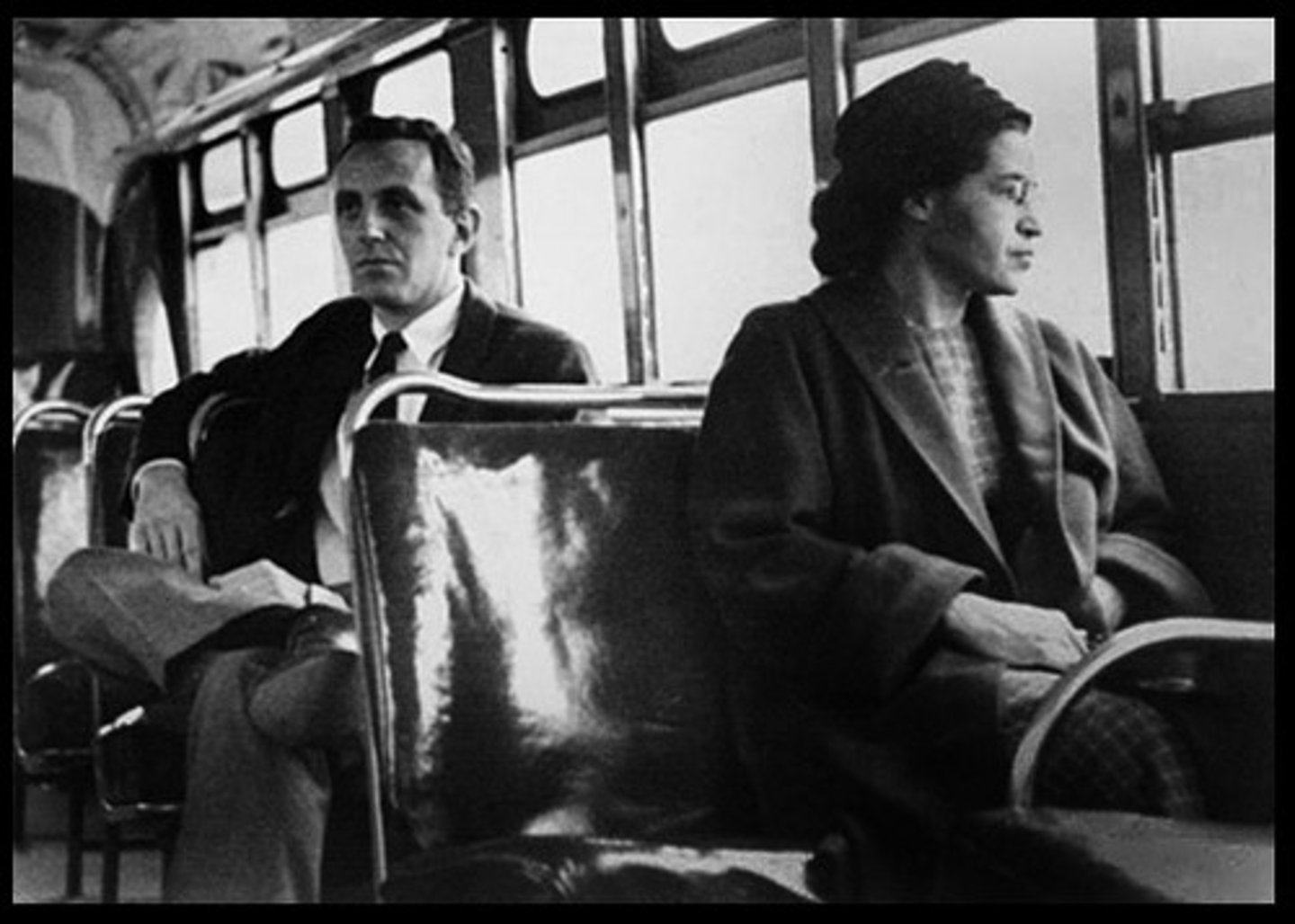
Martin Luther King, Jr.
An advocate of nonviolent methods of protest, King (1929-1968) became perhaps the most influential leader of the civil right movement. He encouraged the mid-1950s Montgomery bus boycott to be nonviolent. He led the March on Washington in 1963, where he delivered his famous "I Have a Dream" speech. He was assassinated in 1968.
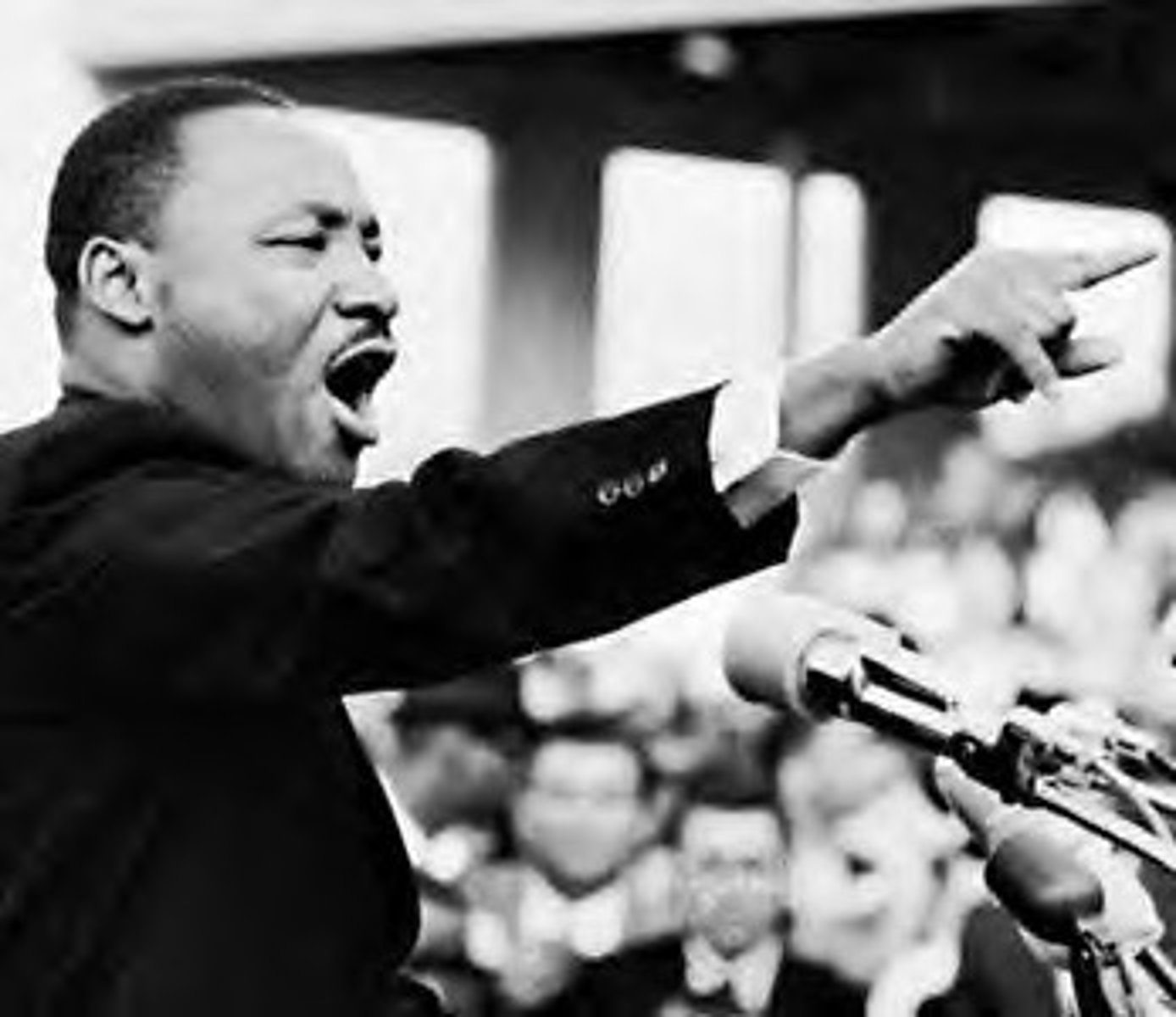
Little Rock Nine
In September 1957 the school board in Little rock, Arkansas, won a court order to admit nine African American students to Central High a school with 2,000 white students. The governor ordered troops from Arkansas National Guard to prevent the nine from entering the school. The next day as the National Guard troops surrounded the school, an angry white mob joined the troops to protest the integration plan and to intimidate the AA students trying to register. The mob violence pushed Eisenhower's patience to the breaking point. He immediately ordered the US Army to send troops to Little Rock to protect and escort them for the full school year.
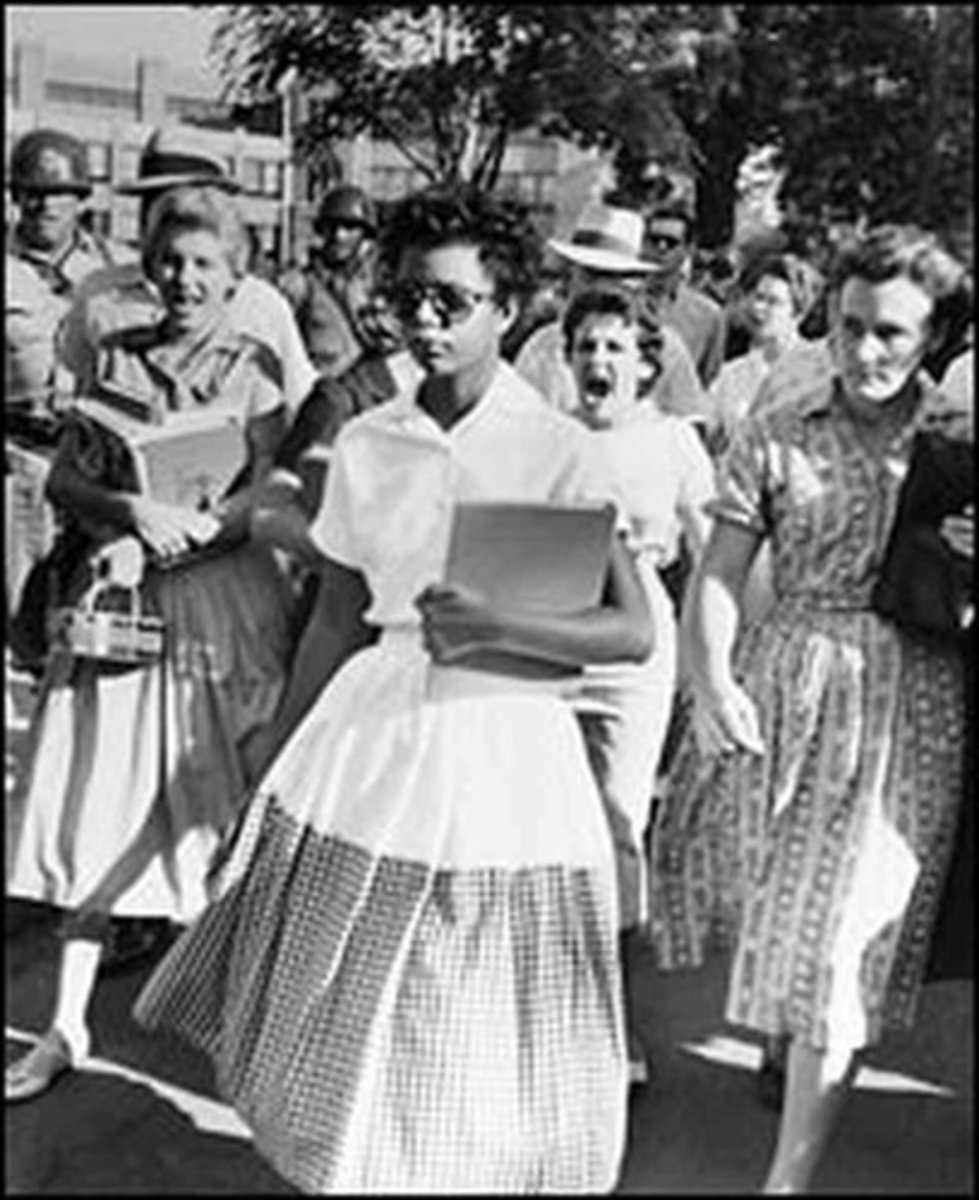
Jackie Robinson
The first African American player in the major league of baseball. His actions helped to bring about other opportunities for African Americans.
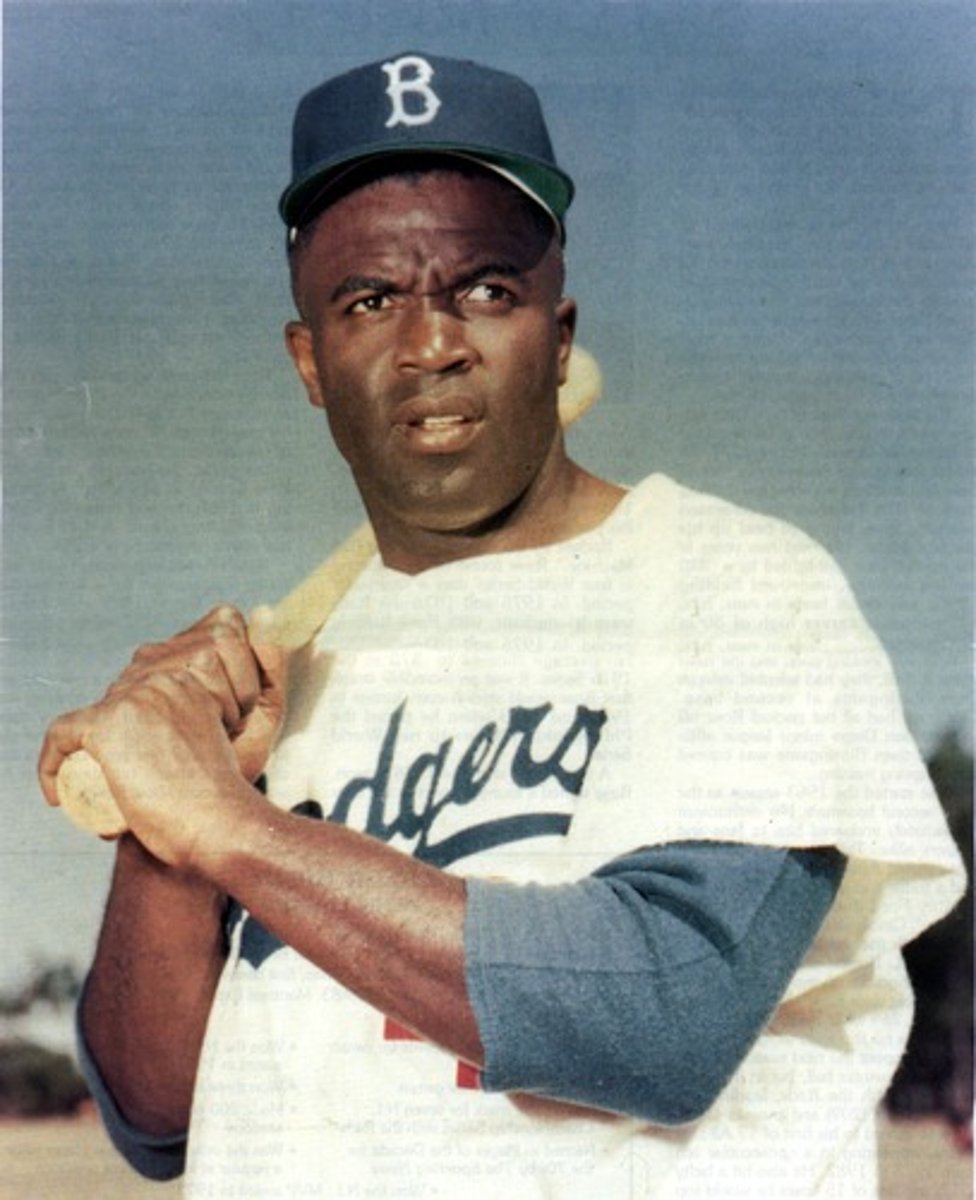
CORE (Congress of Racial Equality)
an organization that sought to apply non-violent protest as means of fighting segregation
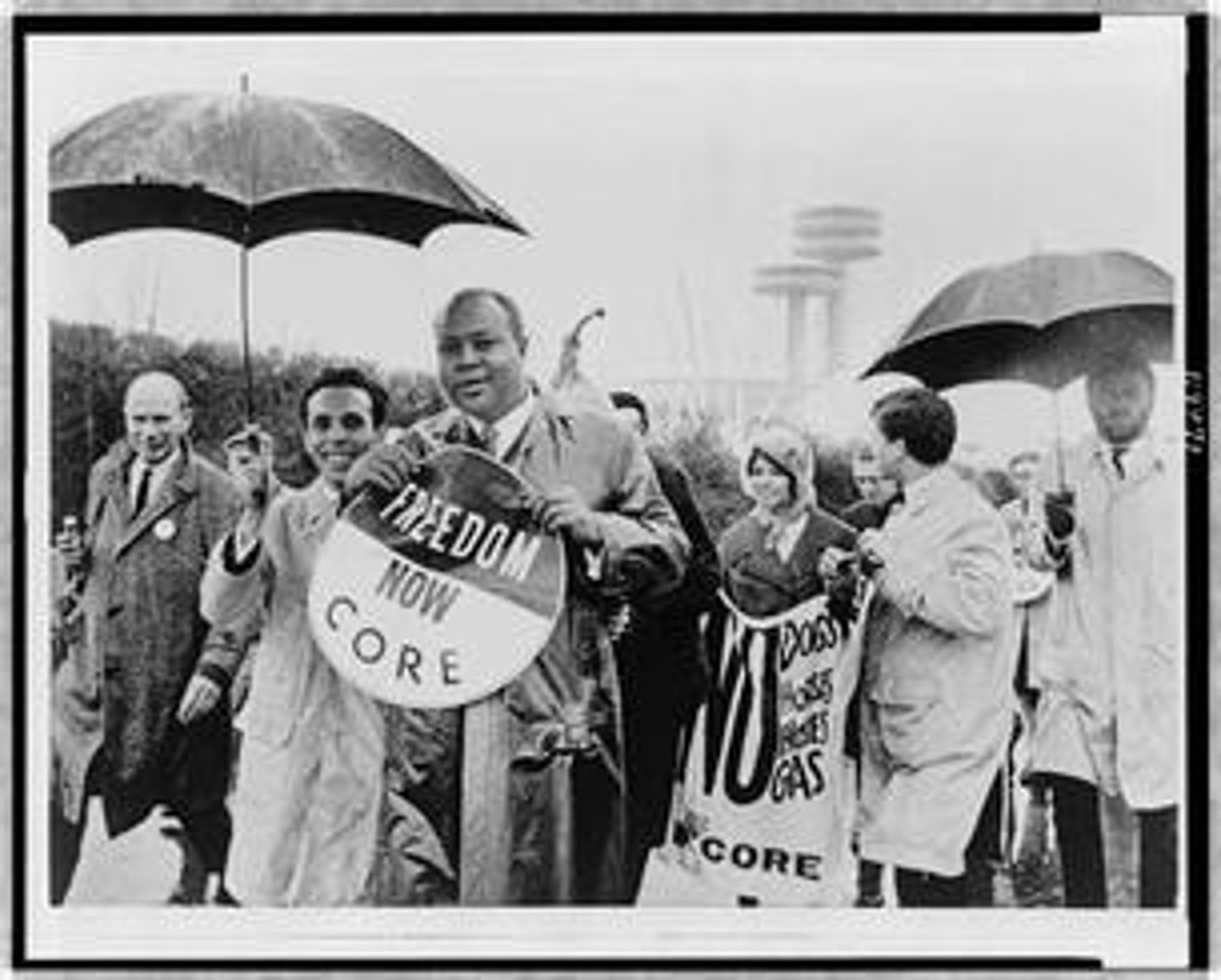
Sweat v. Painter (1950)
UT law school must accept African-American students, since no equivalent African-American law school exists
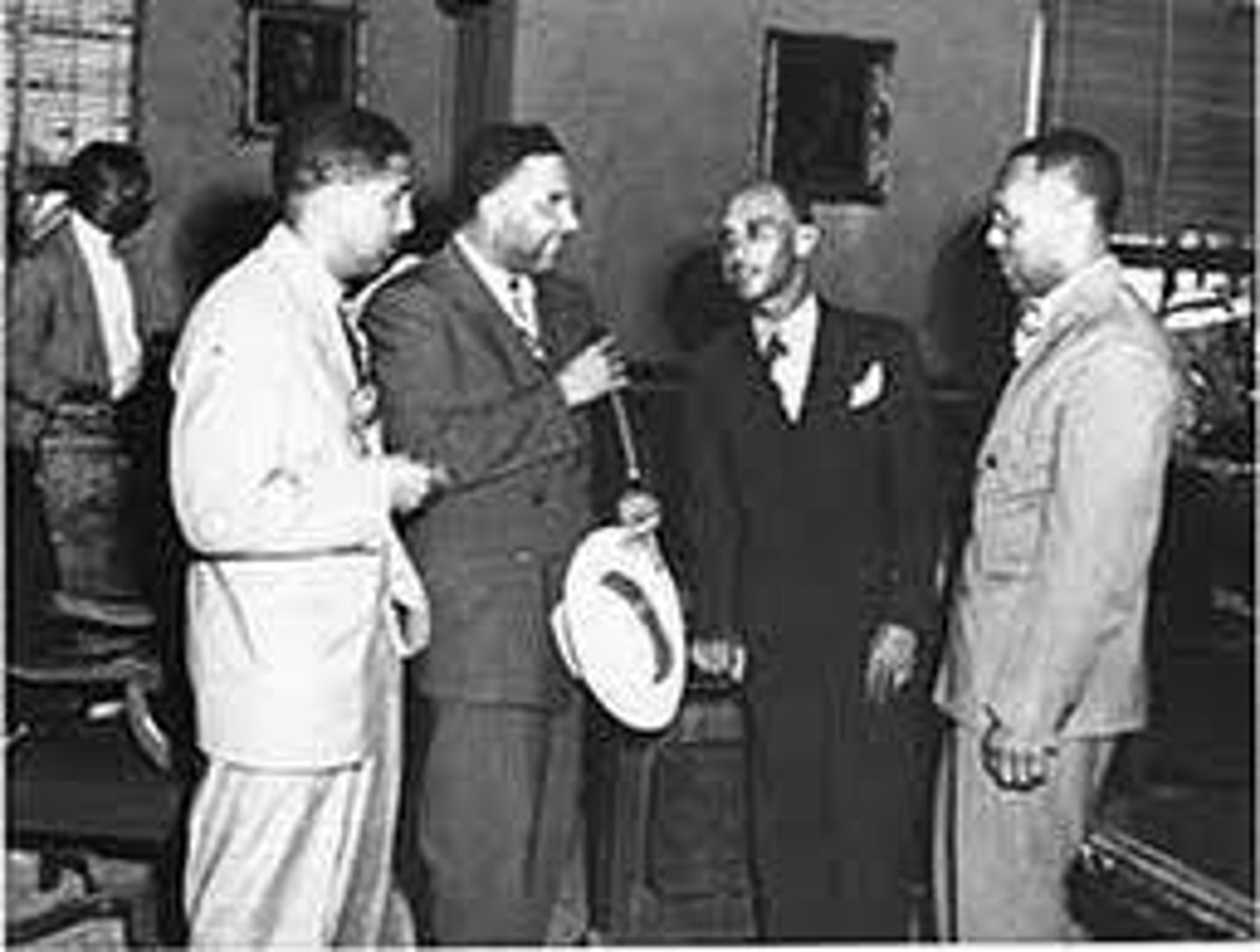
Brown v. Board of Education
1954 - The Supreme Court overruled Plessy v. Ferguson, declared that racially segregated facilities are inherently unequal and ordered all public schools desegregated.
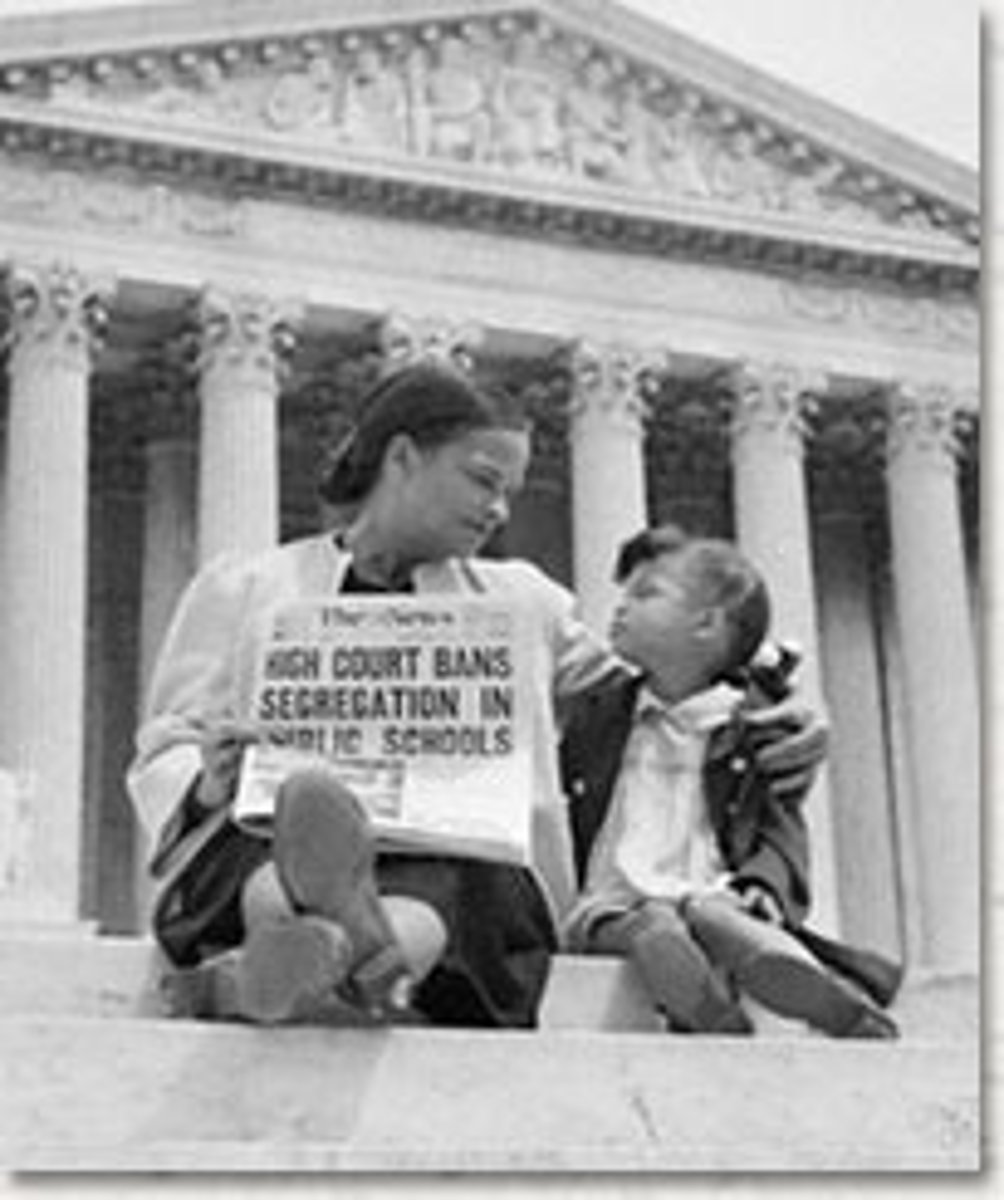
Southern Manifesto
A document that repudiated the Supreme Court decision in Brown v. Board of Education and supported the campaign against racial integration in public places
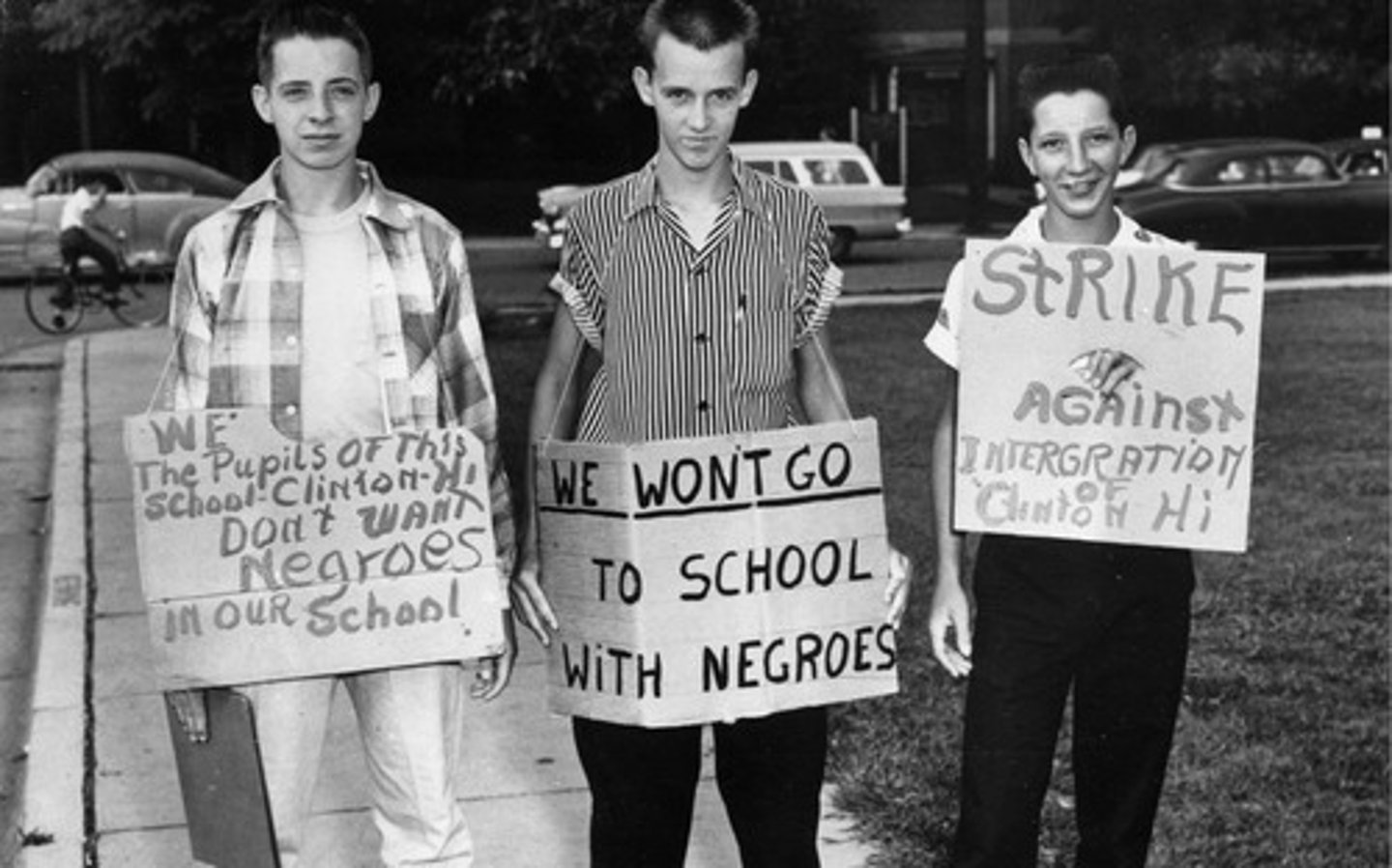
Strom Thurmond and the Dixiecrats
A politician who ran for the presidency of the United States in 1948 against Truman. He led the Dixiecrats who were southern Democrats who opposed Truman's position on civil rights. They wanted the south to keep segregated.
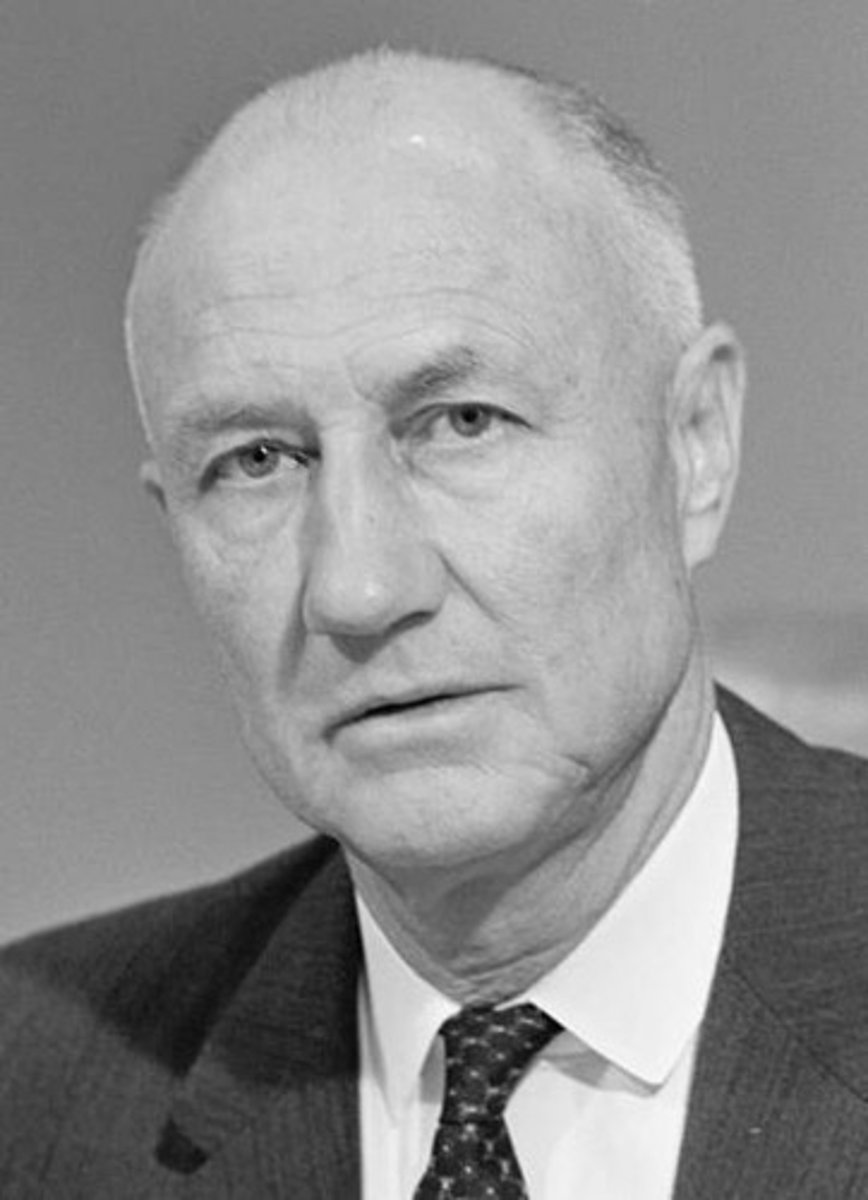
SCLC (Southern Christian Leadership Conference)
group of mostly African American ministers who worked to fight injustice through nonviolence
